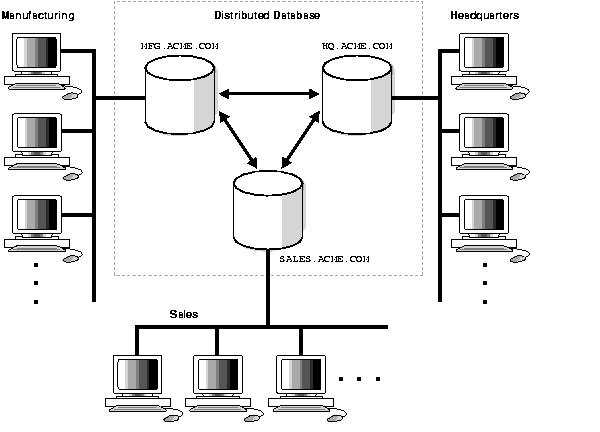SQL transparency in a distributed database

There is some research I am carrying out and I am a bit lost. The research is concerning database systems and SQL in specific. I wanted to find out, how can SQL be used to create location transparency in a distributed database?













